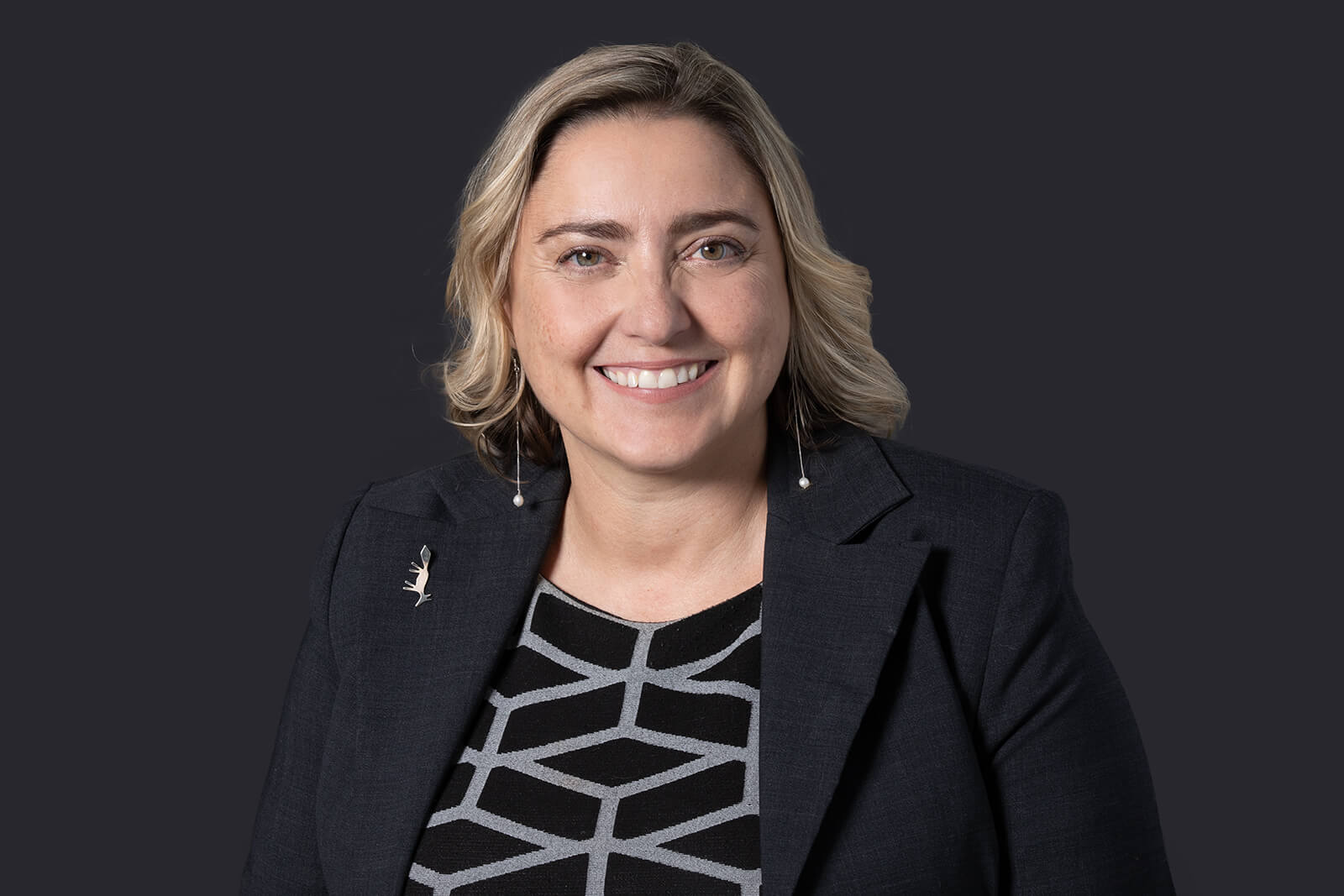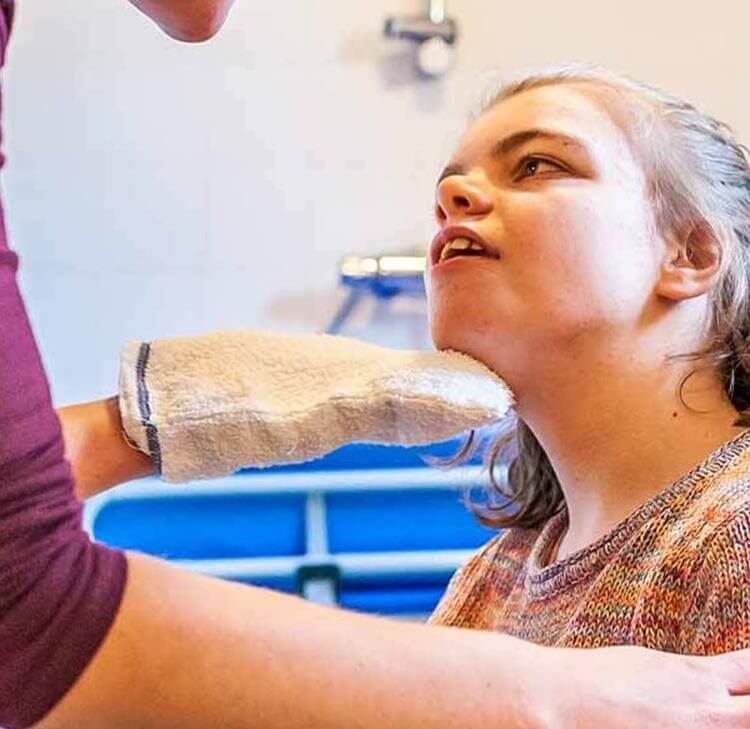Browne Jacobson is a trusted advisor to a wide range of health and social care providers and commissioners on all matters related to mental capacity law. Our experienced team provides expert legal advice and assistance in this area, including handling health and welfare cases in the Court of Protection.
We understand that mental capacity issues can be complex and challenging, and that organisations in the health and social care sector face unique pressures in this area of work. Our team is committed to providing compassionate, practical solutions that meet our clients' needs.
With a wealth of experience in mental capacity law, we have a deep understanding of the legal and ethical issues involved. We work closely with our clients to ensure that they receive the support and guidance they need to make informed decisions and protect the best interests of those in their care. Our lawyers also specialise in mental health law, and can provide valuable advice on how the Mental Capacity and Mental Health Acts interact with each other, including which framework to apply in a given situation.
Our team, which includes in-house barristers, has been at the forefront of policy and practice in the Court of Protection since it was established. We are ranked in Band 1 for this area of work in Chambers and Partners.
"The team at Browne Jacobson is very experienced, knowledgeable and at the forefront of developing law in this space."
Our mental capacity law services
Our health and social care solicitors are experts in mental capacity law and Court of Protection work. We act for NHS bodies, independent sector providers, commissioners and local authorities.
Our team is top ranked in Chambers and Partners and is led by Rebecca Fitzpatrick, who is widely renowned for her expertise in both mental capacity and mental health matters.
We strive to provide our clients with the best possible service and support and our specialist team is always on hand to provide guidance and assistance whenever it is needed – including out of hours if required.
We operate a 24-hour service to our clients. This enables us to assist with urgent or emergency applications to Court of Protection, when issues arise unexpectedly out of hours and a decision needs to be made on behalf of an individual without delay.

The Mental Capacity Act provides the legal framework for assessing an adult’s capacity to make decisions. It also governs decision making on behalf of individuals who are not able to make decisions for themselves.
Our lawyers have unrivalled knowledge of the Act and accompanying Code of Practice, as well as key principles established by case law. We can offer guidance on how to assess capacity for various decisions, how to ensure decisions are made in a person’s best interests and how to document assessments and decisions effectively.
Mental health and capacity law
Our lawyers specialise in both mental health and mental capacity law and we can provide valuable advice on how these laws operate and interact. We can guide you on which legal framework to apply in a particular situation, to ensure lawful decision making. With our expertise, health and care organisations can be confident that they are providing the best possible support to vulnerable individuals, and that they are protecting the rights and interests of those in their care.

There may be instances where it is necessary to involve the Court of Protection in health and welfare matters.
For instance, when there is a dispute over an individual’s capacity to make a particular decision, a disagreement about what course of action or treatment is in the person’s best interests or when proposed actions or treatment involve force or restraint that will amount to a deprivation of liberty. Some medical treatment is considered so serious that an application to court will usually be required to analyse the issues of capacity and best interests, even if there is no disagreement between all those involved about the proposed treatment.
Court of Protection lawyers
Our team has extensive experience of assisting health and social care providers and commissioners in making applications to the Court of Protection. We can advise whether an application is required, draft all the necessary court forms and orders, assist staff in preparing witness statements and collating other evidence and provide advocacy at the hearings, including through instructions to our specialist in-house barristers.
We understand that Court of Protection proceedings can be incredibly stressful and daunting for staff; our down-to-earth and pragmatic style ensures that we can guide and support practitioners through the entire process from start to finish.
We stay up to date with the latest developments in mental capacity case law, ensuring that our advice and assistance are based on the most current decisions and guidance from the courts.

Lasting Powers of Attorney and advance decisions to refuse treatment
The Mental Capacity Act allows people to plan for a time in the future when they may lack capacity, by enabling people aged 18 and over to create Lasting Powers of Attorney and advance decisions to refuse treatment. We can assist with any queries about such documents, including determining whether the documents are valid and applicable in any given situation.
Deputies
The Court of Protection can appoint deputies to make decisions on behalf of individuals who lack the capacity to make decisions for themselves. Our team can provide valuable assistance to health and social care organisations in understanding the significance of deputies and their role in decision-making. Additionally, we can offer guidance on how to address any concerns that may arise regarding deputies.

Our specialist team can offer advice, guidance and representation in Court of Protection and High Court proceedings relating to deprivation of liberty.
Please see our separate deprivation of liberty page for further information.
Mental Capacity Act training
We understand the importance of ensuring that all staff within health and social care organisations have a good understanding of the Mental Capacity Act. We therefore offer training on the Act and accompanying Code of Practice to all levels of staff within these organisations.
Our training is designed to provide staff with a comprehensive understanding of the Act, including its guiding principles, key provisions and how it applies in practice. We can tailor our training to meet the specific needs of your organisation, ensuring that it is relevant and engaging for your staff.
Our training is delivered by experienced lawyers who have a friendly, down-to-earth style. They can provide examples and case studies to help staff understand how the Act applies in real-life situations.
Mental capacity forums
We hold mental health and mental capacity case law update sessions, specifically designed for professionals in the health and social care sectors. These informative sessions are hosted on MS Teams and are free to attend. Our specialist lawyers provide summaries of recent key cases, along with valuable insights for your practice.
We also present case law update sessions at various regional forums and networks. We focus on the most recent and significant mental capacity and deprivation of liberty cases, to keep attendees abreast of the latest developments and guidance from the courts.

Browne Jacobson runs a regular Shared Insights forum, which is designed for those working within NHS organisations, local authorities, independent health and social care providers and those specialising in mental health. Each session is an hour long, delivered via MS Teams and focusses on a pressing issue or sector challenge. The forum is chaired by a Browne Jacobson lawyer and features a panel of guest speakers.
The Shared Insights programme includes a regular safeguarding forum, with a focus on mental capacity and mental health related issues. Our previous sessions have looked at the challenges caused by disordered eating in education, health and social care settings and prolonged disorders of consciousness.
To find out more about Shared Insights and to join a future session, please visit our Shared Insights hub.
Our health and social care solicitors are experts in mental capacity law and Court of Protection work. We act for NHS bodies, independent sector providers, commissioners and local authorities.
Our team is top ranked in Chambers and Partners and is led by Rebecca Fitzpatrick, who is widely renowned for her expertise in both mental capacity and mental health matters.
We strive to provide our clients with the best possible service and support and our specialist team is always on hand to provide guidance and assistance whenever it is needed – including out of hours if required.
We operate a 24-hour service to our clients. This enables us to assist with urgent or emergency applications to Court of Protection, when issues arise unexpectedly out of hours and a decision needs to be made on behalf of an individual without delay.

The Mental Capacity Act provides the legal framework for assessing an adult’s capacity to make decisions. It also governs decision making on behalf of individuals who are not able to make decisions for themselves.
Our lawyers have unrivalled knowledge of the Act and accompanying Code of Practice, as well as key principles established by case law. We can offer guidance on how to assess capacity for various decisions, how to ensure decisions are made in a person’s best interests and how to document assessments and decisions effectively.
Mental health and capacity law
Our lawyers specialise in both mental health and mental capacity law and we can provide valuable advice on how these laws operate and interact. We can guide you on which legal framework to apply in a particular situation, to ensure lawful decision making. With our expertise, health and care organisations can be confident that they are providing the best possible support to vulnerable individuals, and that they are protecting the rights and interests of those in their care.

There may be instances where it is necessary to involve the Court of Protection in health and welfare matters.
For instance, when there is a dispute over an individual’s capacity to make a particular decision, a disagreement about what course of action or treatment is in the person’s best interests or when proposed actions or treatment involve force or restraint that will amount to a deprivation of liberty. Some medical treatment is considered so serious that an application to court will usually be required to analyse the issues of capacity and best interests, even if there is no disagreement between all those involved about the proposed treatment.
Court of Protection lawyers
Our team has extensive experience of assisting health and social care providers and commissioners in making applications to the Court of Protection. We can advise whether an application is required, draft all the necessary court forms and orders, assist staff in preparing witness statements and collating other evidence and provide advocacy at the hearings, including through instructions to our specialist in-house barristers.
We understand that Court of Protection proceedings can be incredibly stressful and daunting for staff; our down-to-earth and pragmatic style ensures that we can guide and support practitioners through the entire process from start to finish.
We stay up to date with the latest developments in mental capacity case law, ensuring that our advice and assistance are based on the most current decisions and guidance from the courts.

Lasting Powers of Attorney and advance decisions to refuse treatment
The Mental Capacity Act allows people to plan for a time in the future when they may lack capacity, by enabling people aged 18 and over to create Lasting Powers of Attorney and advance decisions to refuse treatment. We can assist with any queries about such documents, including determining whether the documents are valid and applicable in any given situation.
Deputies
The Court of Protection can appoint deputies to make decisions on behalf of individuals who lack the capacity to make decisions for themselves. Our team can provide valuable assistance to health and social care organisations in understanding the significance of deputies and their role in decision-making. Additionally, we can offer guidance on how to address any concerns that may arise regarding deputies.

Our specialist team can offer advice, guidance and representation in Court of Protection and High Court proceedings relating to deprivation of liberty.
Please see our separate deprivation of liberty page for further information.
Mental Capacity Act training
We understand the importance of ensuring that all staff within health and social care organisations have a good understanding of the Mental Capacity Act. We therefore offer training on the Act and accompanying Code of Practice to all levels of staff within these organisations.
Our training is designed to provide staff with a comprehensive understanding of the Act, including its guiding principles, key provisions and how it applies in practice. We can tailor our training to meet the specific needs of your organisation, ensuring that it is relevant and engaging for your staff.
Our training is delivered by experienced lawyers who have a friendly, down-to-earth style. They can provide examples and case studies to help staff understand how the Act applies in real-life situations.
Mental capacity forums
We hold mental health and mental capacity case law update sessions, specifically designed for professionals in the health and social care sectors. These informative sessions are hosted on MS Teams and are free to attend. Our specialist lawyers provide summaries of recent key cases, along with valuable insights for your practice.
We also present case law update sessions at various regional forums and networks. We focus on the most recent and significant mental capacity and deprivation of liberty cases, to keep attendees abreast of the latest developments and guidance from the courts.

Browne Jacobson runs a regular Shared Insights forum, which is designed for those working within NHS organisations, local authorities, independent health and social care providers and those specialising in mental health. Each session is an hour long, delivered via MS Teams and focusses on a pressing issue or sector challenge. The forum is chaired by a Browne Jacobson lawyer and features a panel of guest speakers.
The Shared Insights programme includes a regular safeguarding forum, with a focus on mental capacity and mental health related issues. Our previous sessions have looked at the challenges caused by disordered eating in education, health and social care settings and prolonged disorders of consciousness.
To find out more about Shared Insights and to join a future session, please visit our Shared Insights hub.
Court of Protection barristers
Our specialist Court of Protection barristers at Browne Jacobson have experience acting in a wide range of Court of Protection matters.
We act on behalf of NHS bodies, independent providers, commissioners and local authorities, in serious medical treatment cases, health and welfare disputes and matters under the High Court’s inherent jurisdiction. Located across each of our English and Welsh offices, our Court of Protection barristers appear across England and Wales before judges of all tiers of the Court of Protection.
We understand the ways in which cases involving the Court of Protection impact society’s most vulnerable individuals. Our breadth of experience providing specialist support and advocacy for health and social care organisations means that we understand the pressures felt by your organisations. This insider-knowledge enables our Court of Protection barristers to guide you through proceedings, with the aim of achieving a fair and realistic outcome.
We work alongside our specialist solicitor colleagues to provide accessible, straightforward and robust advocacy expertise throughout the life of a case. From initial advice, to position statement drafting and representation at the final contested hearing, we will be by your side.
Clerked professionally, we can provide direct fee quotations for the work we undertake with real clarity on pricing comparable with chambers.
Samantha Paxman, Partner (Barrister) (2011)
Luke Berry, Legal Director (Barrister) (2014)
Sarah Vince, Principal Associate Barrister (2007)
Rebecca Blackwood, Senior Associate Barrister (2001)
Charlotte Watts, Senior Associate Barrister (2012)
Kiera Riddy, Associate Barrister (2019)
Frequently asked questions
The Mental Capacity Act 2005 (MCA) is a law in England and Wales that applies to those who are aged 16 and over (with a few exceptions). The Act is designed to empower people to make decisions for themselves wherever possible. It sets out the test for assessing a person’s capacity to make a decision and provides a legal framework for making a decision on behalf of a person who lacks the capacity to make the decision for themselves. The legislation ensures that the person is at the heart of the decision-making process and that any decision made on their behalf is in their best interests.
The MCA applies to a wide range of decisions and circumstances, including decisions about medical treatment, care arrangements, and financial matters. The MCA sets out five key principles that must be followed when making decisions on behalf of someone who lacks capacity.
The MCA also allows people to plan for a time in the future when they may lack capacity, as it enables people who are aged 18 and over to create a Lasting Power of Attorney. This is a legal document that allows an individual to appoint one or more people (the attorneys) to make decisions on their behalf if they become unable to make decisions for themselves. It also allows people to make advance decisions to refuse treatment.
The Mental Capacity Act is underpinned by five key principles, which are set out in section 1. Principles 1 – 3 apply when determining whether someone has capacity or not, and principles 4 – 5 support the best interests decision making process. The five principals are as follows:
- Presumption of capacity - A person must be assumed to have capacity unless it is established that they lack capacity.
- Supporting individuals to make their own decisions - A person is not to be treated as unable to make a decision unless all practicable steps to help them to do so have been taken without success.
- Unwise decisions - A person is not to be treated as unable to make a decision merely because they make an unwise decision.
- Best interests - An act done, or decision made, on behalf of a person who lacks capacity must be done, or made, in their best interests.
- Less restrictive options - Someone acting or making a decision on behalf of someone else must consider whether it is possible to decide or act in a way that would interfere less with the person’s rights and freedom of action, or whether there is a need to decide or act at all.
The Mental Capacity Act (the Act) Code of Practice (the Code) provides guidance and information about how the Act works in practice. It is aimed at a wide range of people who work with and/or care for adults who may lack capacity to make particular decisions, including health and social care professionals, attorneys, deputies, and family members. It is designed to be accessible and easy to understand and includes practical examples and case studies.
The Code has statutory force and certain categories of people, including those acting in a professional capacity (such as health and social care staff and care workers), must have regard to it.
However, the Code has not been materially updated since it was first published in 2007, despite several significant cases being heard in the realm of mental capacity law since. Whilst professionals must still have regard to the Code, it is important that principles established from recent case law are also followed. Our team stays up to date with the latest developments in mental capacity law and can provide you with advice and assistance based on the most current decisions and guidance from the courts.
The Mental Health Act (MHA) and the Mental Capacity Act (MCA) are two separate pieces of legislation. The MHA is concerned with the detention, assessment, and treatment of people with a mental disorder that pose a risk to their own health or safety or to others. It sets out the legal framework for the compulsory admission of people to hospital for assessment and treatment of their mental health, and the safeguards and rights that must be in place to protect their interests. The MCA, on the other hand, is concerned with decision-making for people who lack the capacity to make decisions for themselves. It sets out the legal framework for assessing capacity and making decisions on behalf of people who lack capacity, as well as the principles that underpin such decision-making.
The MHA and the MCA are complex pieces of legislation that can be difficult to navigate. However, it is vital that healthcare professionals understand the differences between them to ensure that patients receive the appropriate care and support. Our team of legal experts specialise in both mental health and mental capacity law and can provide guidance and advice on the operation and interaction of the two Acts. With our expertise, healthcare professionals can be confident that they are providing the best possible care and support to their patients, and that patients' rights and interests are protected.
The Court of Protection is a specialist court in England and Wales, which was established under the Mental Capacity Act (MCA). It deals with issues related to people who lack capacity to make decisions for themselves.
The Court of Protection is empowered to make decisions about a wide range of issues. These include determining whether a person has the capacity to make a specific decision, whether a particular decision is in a person's best interests and whether a deputy should be appointed to act on behalf of a person who lacks capacity. The court’s jurisdiction extends to both property and financial affairs as well as health and personal welfare matters. It also has the authority to handle emergency applications, such as those pertaining to life sustaining treatment.
Making an application or responding to proceedings in the Court of Protection can be a complex process. Our team of specialist lawyers has years of experience in this area and can provide your organisation with all the guidance and support it needs.
Featured experience
Medical treatment dispute
We represented Manchester University NHS Foundation Trust in the case of Re KM [2021] EWCOP 42.
This case involved a medical treatment dispute over the withdrawal of COVID-19 ECMO treatment and ventilation.
Urgent serious medical treatment case
We represented an NHS Trust in a case involving a young man, P, who had autism and chronic kidney disease.
P needed regular haemodialysis treatment, without which he would die within days. P lacked capacity to make decisions about his kidney disease treatment.
Following an incident in which P cut his dialysis line and then refused a replacement, we assisted the Trust in making an urgent application to the Court of Protection to determine which treatment option was in his best interests.
'Snow leopard' mental capacity case
We represented both an acute and a mental health NHS Trust in the notable Court of Protection case, In the matter of Patricia [2023] EWCOP 42.
This case concerned Patricia, a young woman with anorexia nervosa who was perilously close to death. Despite a consensus that Patricia had capacity to litigate and instruct her own lawyers, there was a dispute regarding her capacity to make decisions about medical treatment for her anorexia.
Highlighting the rarity of such cases, likened to 'a snow leopard', the Judge ultimately determined that Patricia lacked the necessary capacity for making medical treatment decisions about her anorexia.
Cases involving both the Mental Health Act and the Mental Capacity Act
We represented a mental health trust in a case involving a 35 year old pregnant lady who was detained under the Mental Health Act.
The woman was uncertain whether she wanted to carry her baby to full term, but was fast approaching the end of the permitted timeframe for an abortion. The trust also considered that she lacked capacity to make decisions about terminating the pregnancy.
We assisted the Trust in making an application to the Court of Protection to establish whether the woman had the capacity to decide whether to have a termination and whether such a procedure was in her best interests.
Testimonials
"The team at Browne Jacobson is very experienced, knowledgeable and at the forefront of developing law in this space."
"Their advice is very much grounded in pragmatism and in the commercial world that we face - they have a really good balance."
"Browne Jacobson is one of the leading firms in this area in terms of medical treatment. They are excellent lawyers with brilliant knowledge of the law."
What our people say
Working in mental health and mental capacity law
Rebecca Fitzpatrick, Partner
"The team I head helps the NHS to save the lives of vulnerable adults and children in urgent medical treatment cases which gives me a lot of satisfaction."Find out more

Key contacts

Rebecca Fitzpatrick
Partner

Samantha Paxman
Barrister (Partner)

Mark Barnett
Partner

Ed Pollard
Partner

Victoria Colclough
Partner

Rebecca Blackwood
Barrister (Senior Associate)

Sarah Vince
Barrister (Principal Associate)

Clare Shepherd
Senior Associate










































